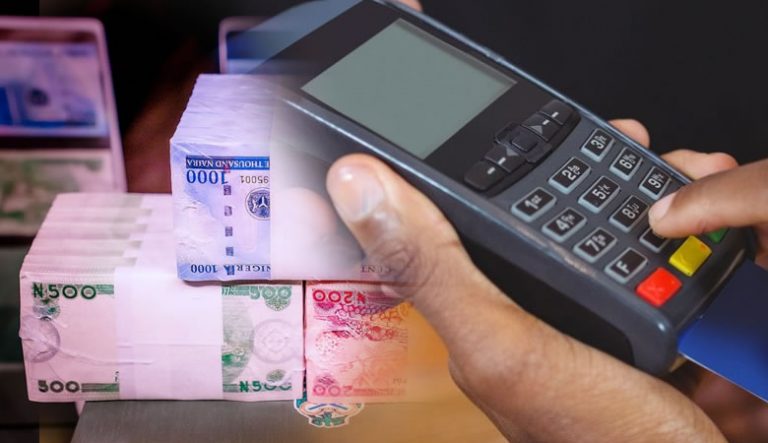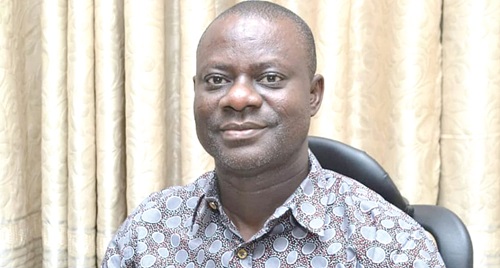The Central Bank of Nigeria (CBN) launched the agent banking and point-of-sale (POS) systems in 2013 to increase financial inclusion with a charge to agents to offer last-mile financial services to the public as traditional banks couldn’t open branches fast enough to adequately cater to the country’s growing population.
Prior to that time, Afuluchianya Ifedilichukwu, now 74, had been unbanked for over 60 years due largely to illiteracy, she described the time as the ‘dark decades of painful exclusion’.
Growing up in Effium, Ohaukwu Local Government Area of Ebonyi State, Ifedilichukwu had no bank account but the plights of bank account holders who were mainly depositing or withdrawing their funds, were not lost on her. In a nostalgic recount, she said, “I didn’t have a bank account then. But I saw account holders travelling to 135 area of Ohaukwu LGA to get money from First Bank, the only bank in the area.
“If they got there and there was no money, they returned home sad and dejected having wasted their money and precious time”.
Despite sustained innovations in the banking sector, a good percentage of citizens was still excluded until the introduction of the POS payment system, now referred to as “the game changer”.

“The introduction of the POS is revolutionary. Since it gained popularity across the country, I hardly go to the bank since I opened my account 11 years ago. I stay around my house and do my transactions”.
Musa Nnam, who opened his first bank account in 2003 with one of the new-generation banks in Umuahia, Abia State, gladly submits that the POS payment system has filled a yearning gap in Nigeria’s banking sector.
“Those years, financial transactions were difficult and time consuming. My bank had only one branch in Umuahia. So, any time I went there, there was a long queue. If you are lucky, you do your transaction that day. If not, you returned home unsuccessful”.
“Some of us preferred to keep our money at home for easy access, but for fear of armed robbery. But now, through POS, you can deposit or withdraw your money anywhere, anytime”.
Nnam recalled his nasty experience 6 years ago. “I made a transaction via the POS and the money did not get to my account. I went back to the operator, and he said I should go to my bank. The told me that the operator got the benefit back. Having been pushed forth and back, I got frustrated and forgot about the money”.
Despite the seeming dangers including the likelihood of having their ATM cards swapped, some adults leveraging the flexibility of the POS send minors to withdraw money on their behalf.

The successes
Apart from financial inclusion, produced over 1.8 million PoS agents in 2022 alone, while the Nigeria Inter-Bank Settlement System (NIBSS), as of October 2, 2024, registered 26.54 million PoS terminals as against 21.65 registered in July 2023. According to Statista, over 3.8 billion POS payments were registered in Nigeria in 2022, rising from the 2.7 billion in 2021.
As of July 2024, NIBSS revealed that 1.02 million terminals of the registered 4.06 million POS machines were either yet to be deployed or have become inactive, though 744,533 new PoS terminals were deployed between August 2023 and July 2024. Value of PoS transactions surged to N1.01 trillion, from the N930.76 billion volume in June 2024 and N923.37 billion in July 2023, demonstrating a growing shift towards cashless transactions in the country.
A financial analyst and Chief Executive Officer, Rugon Capital Limited, Rowland Anitche, submitted that POS has revolutionized the nation’s banking system. “There is a decline in cheque transactions and complete rise in transactions on all the e-payment platforms, POS, e-payment all hitting trillions.
“There’s a paradigm shift towards the current payment platforms. And that’s the future we’re heading to. It is a welcome development facilitating payments not just from banks but also from payment service providers.
Operational hiccups
While the POS’s leap in financial inclusion remains undeniable, it has indisputably posed some challenges. Damian Okweye, a POS operator, comments on this. “
Customers send money, and they’re debited, but I am credited. I ask them to hold on for me to confirm receipt. Some of them become angry because they are pressed for the money”.
“Sometimes, I try to cash out my money so that I can make withdrawals, I can’t do so because almost all networks are poor. To keep the business, some of us use SIM cards from three different telecoms service providers.
“Regularly, customers rush in to withdraw and send money for goods they are expecting. We will withdraw the money successfully but won’t be able to transfer it and the sellers they want pay. I see frustrations all over them and I also unsettled”.
“During account closure, I struggle to balance things up. I lost some money recently. When I complained to POS providers, they asked me to download my statement, which I did, and everything was okay in their system. But my money is missing”.
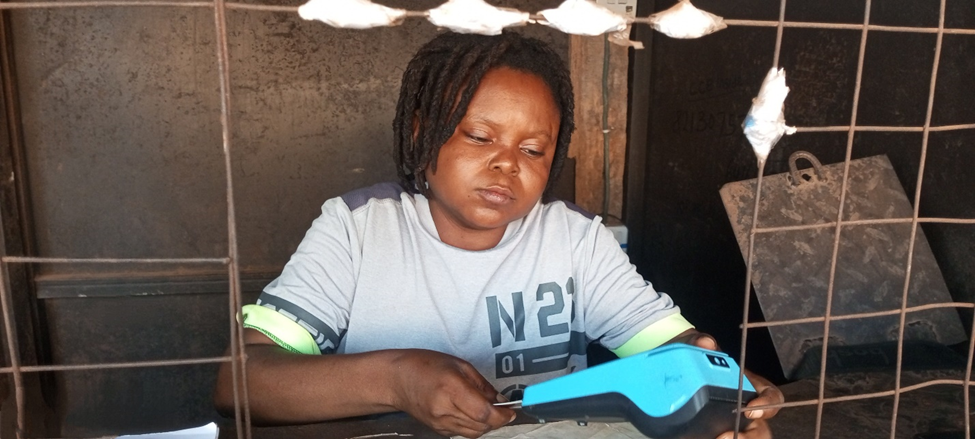
Wasiu Wahab in response to the question on the ease that POS offers said, “It’s very good now. “Just out of your room, before you take few steps, you get to POS and any amount that you need, you get it instantly. It’s been very long I go to banking hall or even ATM stand”.
“Wahab also laid bare his frustrating experience with the POS. “POS is good for us, but that network issue needs to be fixed. On many occasions.
I go to collect money and there is no network. You see the operator taking the machine in different direction searching for network. Any little improvement, one person gets his money. Thereafter, the network goes bad again and others continue to wait”.
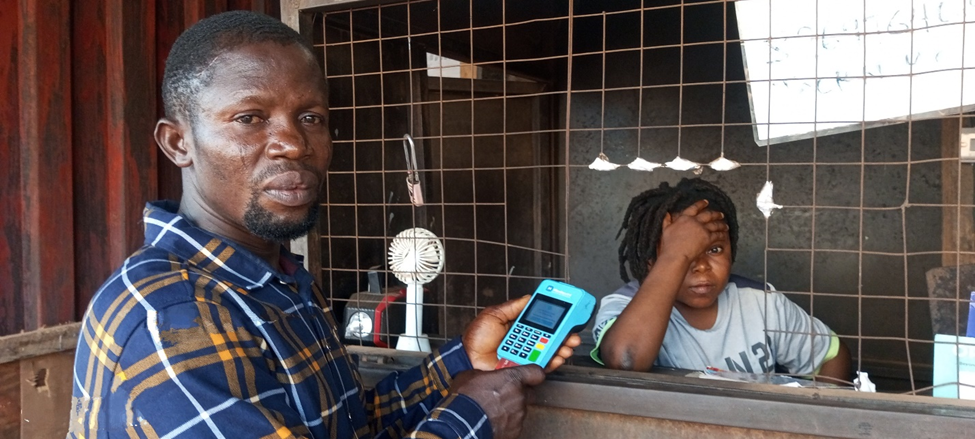
“Bad boys or smart internet technicians are taking advantage of POS while armed robbers and kidnappers also use it to get money from their victims”.
Merchants, who accept POS as a means of payment, also have their tale of woes as revealed by Ifedilichukwu. “When customers pay with POS, we don’t charge anything, but banks will charge us between 20 and 50 naira depending on the amount”.
Nigerians across the country are getting increasingly frustrated with the current cash crunch as most banks pay between N5,000 and N20,000 maximum. “They give N50,000 to a POS operator, which is nothing,” Okweye remarked.
“So, when ATM is paying, we join the queue. We go to bank every day and even source money from traders and other people who have cash some of whom are now asking us to pay. We have to buy cash to keep the business going”.
POS operators have also been accused of enriching themselves at the expense of fellow Nigerians. “We understood during COVID or cash crunch, POS operators were buying money to keep their business. Today, some of them still insist that they buy money, while they collect money free from traders and transporters, Nnam said.
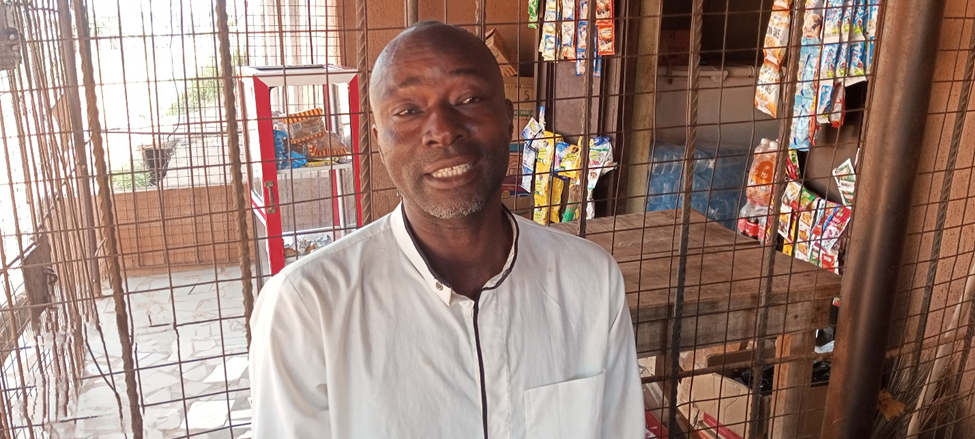
Bank officials including CBN staff have also been accused of connivance with POS operators. Bankers are accused of pushing the money meant for all Nigerians to POS agents, who either run the business on their behalf or pay them for such unwholesome service.
“Certainly, the issue of connivance between POS operators and bank officials is undeniable,” the financial analyst attested. “But gradually, the system will correct itself by the time CBN get one or two offenders and make an example of them”.
Anitche however, blamed the scarcity of cash on CBN’s on-going tactical withdrawal of old naira notes from circulation. “The current withdrawal of the old note is also increasing the illiquidity in the system. We can’t continue to have two different notes. It’s an anomaly. It doesn’t happen anywhere in the world.
“Public announcement will create panic in the system. No need to announce it or give any timeline. Gradually it will phase out without many knowing what is happening and everyone will move on with life”.
Data security is a major concern for retailers. Ensuring that mobile POS systems comply with security standards and protect customer information is essential requirement. In this regard, Okweye explained, “As a POS operator, if you are not careful, sometimes they will swap your card and before you know it, you start receiving alerts. At other times, some fraudulent customers do fake transfers.
You will their debits alerts, but the thing will not impact. Afterwards, the money bounces back to their accounts and I could not trace some of them. It’s a loss to me”.
In the view of a software engineer, Stanley Offor, many of the challenges bedeviling the POS payment are technology-related and should be addressed with technology.
“Tech-related challenges posed by POS include network downtime, inconsistent and unreliable internet connectivity, hardware malfunctions, as well as low-quality or poorly maintained POS devices, fraud risks, skimming and data breaches due to weak security protocols. There are also integration issues such as limited compatibility between POS systems and banking platforms”.
Offor proffered measures to address the problem. “Government needs to collaborate with telecoms providers to improve network infrastructure by prioritizing high-speed, reliable connectivity for financial transactions. System redundancy can be addressed by deploying multiple fallback systems to minimize downtimes,” Offor advised.
“There is also need for enhanced security through implementation of end-to-end encryption and regular device updates to protect against fraud, while data synchronization is equally key. Servers and payment platforms must be regularly upgraded to process transactions faster and reduce delays,” he advised even as he called for homegrown tech-solutions tailored to Nigeria’s specific challenges.
These include offline transaction capabilities, while also fostering partnerships between banks, fintech companies, and telecom operators to streamline operations. Monitoring and regulation of POS services will ensure that service providers meet minimum standards for device quality and transaction speed.
“Government should formulate policies that incentivize infrastructure improvements and penalize persistent lapses in service. More importantly, Nigeria must adopt blockchain technology for enhanced transparency and faster settlements as well as scalable solutions, which will enable the POS system to handle increased transaction volumes, especially during peak periods like market days and festive seasons.
Government up to the task
At a recent capacity building for journalists on Digital Public Infrastructure, organized the Media Foundation for West Africa in conjunction with Co-Develop, the Nigeria Inter-Bank Settlement System Plc (NIBSS), alongside the National Identity Management Commission (NIMC), and Nigeria Communications Commission (NCC) provided perspectives on this emerging global innovation in digital services.
Responding to specific enquiries about customer complaints in respect of failed POS transactions and inability to achieve speedy resolution, William Uko, Head Strategy & Research at NIBSS, attributed this in part to previous incidents of non-compliance by POS service providers which saw them rollout POS machines that bypassed NIBSS, the only Payment Terminal Service Aggregator at the time, mandated by the CBN to have a direct line of sight to all POS transactions.
“This gap in compliance was further exploited by other parties for unwholesome practices creating major credibility and security concerns regarding the integrity of the POS service nationwide”.
Uko however noted that the CBN has over the last 12 months taken additional stringent action to address this indirect routing of transactions by enforcing extant regulations, appointing a second Payment Terminal Service Aggregator (PTSA) to complement NIBSS and championing a geo-fencing arrangement for POS machines.
“This drives accountability and eliminate instances where POS machines were found to be operating far-flung locations away from their zones of authorization”.
“Industry dispute resolution (IDRS) was recently created strictly to resolve cards-related disputes. All disputes must be reported to the IDRS platform and institutions are increasingly reporting disputes.
“Some service providers have even created an automated system to report disputes instantly. As time progresses, you begin to see statistics about disputes resolved just like you access statistics about transactions,” he assured.
NIBSS’s revelatory fraud report earlier indicating that PoS terminals accounted for 26.37% of fraud incidents in 2023, is believed to have prompted CBN’s introduction of Know Your Customer, (KYC) policy which directed all the 1.9 million PoS agents to register with the Corporate Affairs Commission (CAC) for easy identification.
On March 9, 2024, the bank ordered banks, financial institutions, and payment service providers to regulate agent banking and protect customers’ funds, while another report conveyed plan to flag fraudulent transactions through a new feature on PoS terminals.
Another circular signed by Oladimeji Taiwo, Director, Payments System Management Department of the CBN, on September 11, 2024, directed all Payment Service Providers (PSPs) to integrate their transactions through a Payment Terminal Service Aggregator (PTSA), to streamline and track electronic transactions.
CBN had in April issued a PTSA licence to Unified Payment Services Limited (UPSL) to mitigate concerns around the channeling of all Point of Sale (PoS) transactions through NIBSS.
In the view of the financial analyst, Anitche, the CBN is on the right track in its regulatory interventions. It’s a good thing that POS system is subjected to high regulatory standards, monitoring and supervision by CBN and Nigerian Communications Commission which supervises telecoms service providers. “Initially, ATM was resisted but Nigerians finally accepted and enjoyed it.
There are fraud incidents but CBN improved firewalls, and introduced BVN numbers, which addressed the challenge of identity fraud. “Banks should ensure that online payment sites have secured platforms, upgrade internal control and firewalls to prevent phishing and malware attacks and hacking of banks central data centers and backup systems.
“I strongly advised owners of ATM cards to protect their passwords, while misplaced cards are promptly reported for deactivation. Avoid use of date of birth as passwords. “Despite challenges, POS has come to stay as the country steadily heads to a cashless future. “With blockchain payment solutions, the use of cash will become history,” Anitche insisted.



